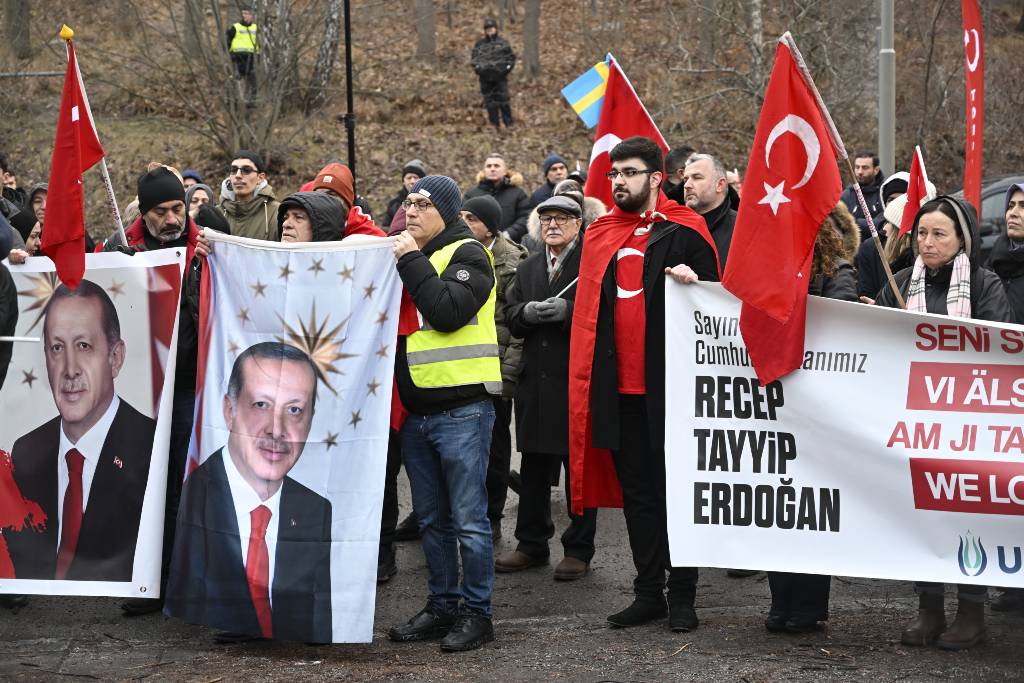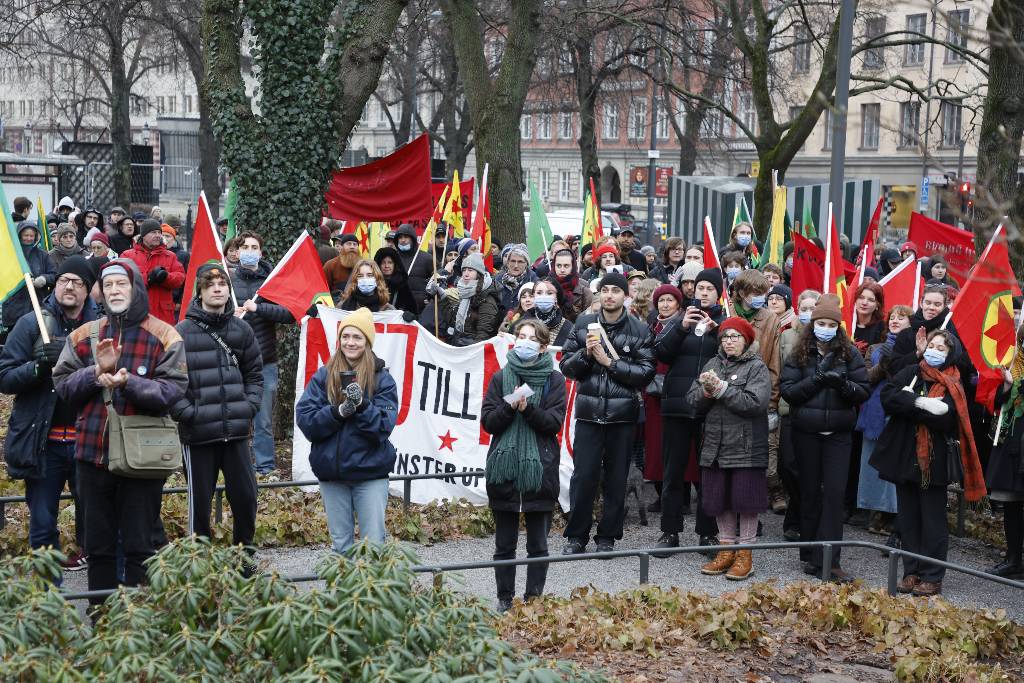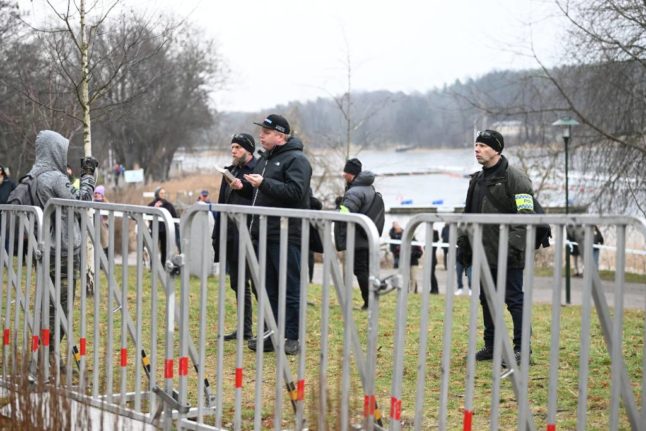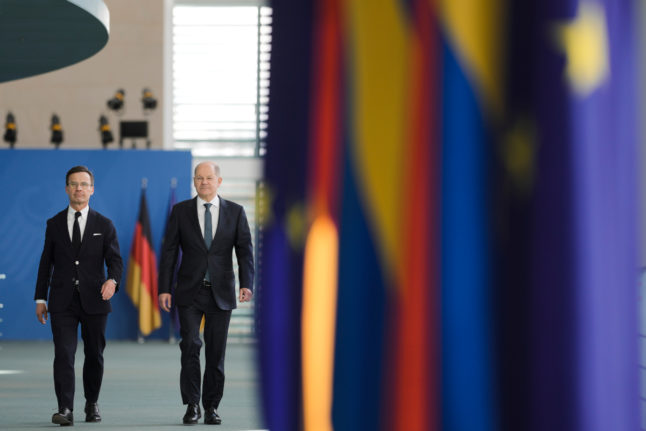Turkish officials denounced the permission granted to Rasmus Paludan, a right-wing Swedish-Danish politician, to stage a protest in front of its embassy in the Swedish capital.
Last year, Paludan’s announcement of a Koran-burning “tour” during the Muslim holy month of Ramadan sparked riots across Sweden.
A day after summoning the Swedish ambassador over Paludan’s latest demo, Ankara said it had called off the visit by Defence Minister Pål Jonson for January 27th, aimed at overcoming Turkey’s objections to Sweden’s NATO bid.
The meeting “has lost its significance and meaning, so we cancelled,” Turkish Defence Minister Hulusi Akar said.
Jonson said the decision to postpone was made jointly with Akar on Friday at the US military base in Ramstein, Germany, where Ukraine’s allies were meeting to discuss further weapon supplies for Kyiv.
“Our relations with Turkey are very important to Sweden, and we look forward to continuing the dialogue on common security and defence issues at a later date,” Jonson tweeted.
Yesterday I met with my Turkish counterpart Hulusi Akar at the US military base in Ramstein, Germany. We decided then to postpone the planned meeting in Ankara until later. (1/2)
— Pål Jonson (@PlJonson) January 21, 2023
The protest by Paludan went ahead on Saturday under heavy police protection, according to an AFP journalist, with around 100 people –including a large number of reporters — gathered near the Turkish embassy in Stockholm.
After a diatribe of almost an hour in which he attacked Islam and immigration in Sweden, Paludan set fire to the Koran with a lighter.
“If you don’t think there should be freedom of expression, you have to live somewhere else,” he told the crowd.
READ MORE: ANALYSIS: Riots over Koran burning test Swedish tolerance
Foreign Minister Mevlut Cavusoglu vented fury at Swedish authorities’ failure to ban the protest. “It’s a racist action, it’s not about freedom of expression,” he said.
A pro-Turkish demonstration of around 100 people also took place on the other side of the embassy.

‘Modern barbarism’
Swedish police gave their authorisation for the demo on Friday after determining it was protected by the country’s liberal freedom of speech laws.
But Turkish presidential spokesman Ibrahim Kalin said allowing the protest was “encouraging hate crimes and Islamophobia”.
“The attack on sacred values is not freedom but modern barbarism,” he tweeted on Saturday.
Devlet Bahceli, head of the nationalist MHP party that is the junior partner in President Recep Tayyip Erdogan’s governing coalition, vowed that “Sweden’s NATO membership will not be approved by the parliament”.
Turkey had already summoned Sweden’s ambassador on Friday to “condemn this provocative action which is clearly a hate crime — in strongest terms,” a diplomatic source said.
READ MORE: Swedish FM: ‘improper’ for me to try to stop Turkey embassy Koran burning
It was the second time this month that Sweden’s Turkey envoy had been summoned. On January 12th, he was called to answer for a video posted by the pro-Kurd Rojava Committee of Sweden that depicted Erdogan swinging by his legs from a rope.
A tweet by the group compared Erdogan to Italy’s Fascist dictator Benito Mussolini, who was hung upside down after his execution in the closing days of World War II.
On Saturday the pro-Kurd Rojava Committee of Sweden joined a rally in Stockholm, held in protest against Erdogan and the Swedish NATO accession.
According to news agency TT, there were more than 500 people who marched to Medborgarplatsen on Södermalm.

Both Sweden and its neighbour Finland are hoping to join NATO, dropping decades of military non-alignment in response to Russia’s invasion of Ukraine.
But they need the consent of Turkey, a member of the alliance, to join. Ankara says its approval is conditional on Swedish steps to extradite people it accuses of terrorism or of having played a part in the 2016 coup attempt against Erdogan.
Turkey says Sweden has not done enough to crack down on Kurdish groups that Ankara views as “terrorist.”
READ MORE: US pressures Turkey to approve Swedish Nato bid ‘soon’



 Please whitelist us to continue reading.
Please whitelist us to continue reading.
Member comments